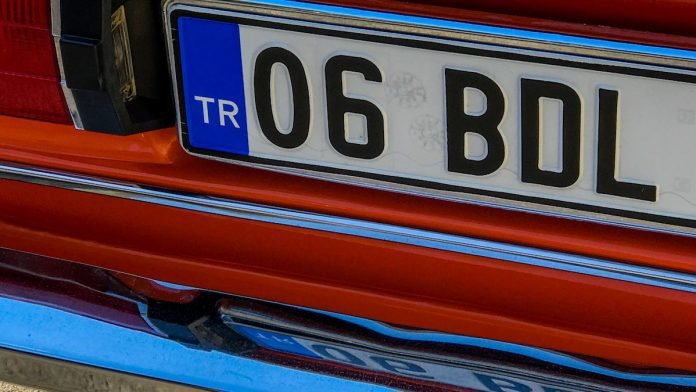Last Updated on September 15, 2022 by admin
Choosing a car number plate can be a very personal decision. You may like to have a specialized plate for your car if you’ve been recognized for a specific accomplishment or background. Government vehicles have white on red plates with a legend of “City, County, or State”. You can also get a personalized plate if the number or letter is not obscene, profane, or would pose a health or safety risk.
Table of Contents
Specialty plates are for motorists with specific accomplishments or backgrounds
There are many reasons why people might want to get specialty license plates. The first reason is that they are an excellent way to show off a particular interest. Whether it’s a sport, hobby, or cause, these plates can make your car stand out. The plates can be purchased without a specific proof of affiliation, but some states require that you order through a specific alumni association. You can check out https://sureplates.co.uk/number-plates/4d-number-plates/ for more information.
There are several different types of specialty license plates. Motorcycles, for example, have their own specialty plate option. These plates are issued to motorcycles that are more than 25 years old. Most of these motorcycle specialty plates are unaltered from the manufacturer’s specifications. This type of license plate is usually maintained by motorcycle hobbyists as a leisure pursuit. If you want to have a special plate, be sure to apply early.
There are many special license plates for motorcycles, classic cars, and other vehicles. These plates commemorate specific achievements, including a specific sports team or an athlete. Other types of specialty license plates celebrate specific backgrounds or accomplishments. The State of Florida has a number of specialty plates that celebrate a particular event or accomplishment. Regardless of the occasion, these plates are a great way to show off your uniqueness and personal style.
The costs for specialty plates vary greatly depending on the type of vehicle. They can be purchased for the first time, renewed, or substituted for existing license plates. Typically, specialty license plates cost extra than standard license plates. You should also know that the fees for specialty license plates are in addition to standard registration fees. These fees are well worth the benefits they provide. If you have a special background or accomplishment, or are a fan of a particular sport, then specialty plates are a great option.
Some specialty license plates may also be customized for a specific organization. These license plates have special messages imprinted on them. The message can be anywhere from two to seven characters long. However, the MVA reserves the right to reject any message that doesn’t fit the vehicle’s background. These specialty plates take four to six weeks to receive. However, they are worth the wait. However, before ordering a specialty plate, you should make sure that you’re aware of the required documentation and the deadlines.
Another example of a specialty license plate is a special plate for Georgia state patrol vehicles. Georgia State Patrol vehicles are required to display special-issue plates. These plates feature the trooper’s badge number and the patch on their shirt. The plates also feature the state’s official website address. It’s a unique way to show your pride for your state! So, if you’re looking to show off, get a specialty plate.
Government-owned vehicles have red on white plates with the legend “City”, “County”, or “State”
In Georgia, government-owned vehicles use standard design license plates with a prefix of “GV”. The left-hand side of the plate contains a decal indicating the type of government the vehicle belongs to. Previously, government-owned vehicles had a number followed by a letter that indicated which type of service they provided. They also had the designation GOVT, which ran horizontally beside the number. These plates are sometimes formatted as GV12345 or GV1234A, depending on the vehicle’s service.
Non-passenger vehicles are also commonly known as vanity plates. These plates are red on white and contain the word “vanity” or “trash.” The plates of government-owned vehicles are different from those of private citizens. A vanity plate is a plate that features a photo of yourself or an object you have purchased. The latter type of plate is most likely a vanity plate.
Various specialty license plates are available for purchase without any proof of affiliation. Emergency plates are designed to let people know they can help in times of emergency. Other specialty plates recognize specific accomplishments and backgrounds. For example, a POW plate honors the service of prisoners of war, while a Purple Heart plate recognizes Purple Heart recipients.
The Washington Post article mentions that efforts are underway for vehicle registration. Federal titling is scheduled to begin in midsummer, and a system for enforcing liability requirements will be in place by year-end. Elmer Brown, a former DMV director who helped the OFM in its vehicle registration efforts, told the Post that he hopes that states will look into the program with pleasure.
The color scheme of government-owned license plates is also unique. Some state and county-owned vehicles have green, blue, or yellow background. These vehicles have white lettering, and are sometimes referred to as government vehicles. Some have special vanity plates, while others have red-on-white plate designs. Aside from school buses, public transportation buses are also considered government vehicles.
The original baseplates were issued in 1984, but by late October 1984, only about 25 percent had been issued. The new plates were a big hit, but the problem of theft was apparent from the beginning. Fortunately, the problem was resolved by December 1984. According to the ALPCA Newsletter, the first OFM plates were designed by Special Agent Lawrence Whitaker of the Federal Bureau of Investigation. This has not been confirmed, however.
License plates must be replaced if they are physically degraded or illegible. Some states have a rule that mandates new plates every five years. In some states, however, this is not done automatically. The vehicle must be registered to the government’s licensing system. The plates will not be replaced automatically if the vehicle’s owner wants to sell the vehicle.
Personalized plates are not obscene, profane, or would present an unreasonable danger to the health or safety of the applicant
There are two kinds of personalized car number plates, vanity and specialty. The first is more recent, becoming popular after the Challenger disaster in 1987. Specialty plates are issued by almost every state. However, the number of available designs varies by state. Vanity plates are not considered obscene or profane, but they are still considered private speech. However, they are still protected under the First Amendment.
Personalized car number plates can be reserved online, and there are several types of these plates available. These plates can be used to display a message or an image, and they must not be obscene, profane, or pose an unreasonable danger to the health or safety of the applicant. Personalized car number plates can contain up to 6 characters. You can apply for a personalized license plate online, and once it has been approved, it will be delivered to the local license office. However, you will have to pay a small additional fee each renewal to transfer the plates to your vehicle.
Vanity plates are a limited form of expression. Since they are limited to the owners of the vehicle, they are not a designated public forum. As such, they are unlikely to meet this high standard. In addition, a specialty plate’s content is likely to be controversial and thus not considered obscene or offensive by the courts.
Unlike a traditional license plate, a specialized plate’s content is not a matter of viewpoint. The most significant test is whether it is a legitimate expression. The sex-related content on a plate is a triggering issue. Then there are restrictions on illegal substances. The first category is arguably viewpoint-neutral, and the second is less problematic.
Nevertheless, a personalized number plate may be prohibited if the inscription is obscene, profane, and/or would pose an unreasonable risk to the applicant. In Rompalo v. Commonwealth, the defendant had no previous convictions for similar misconduct, so his sentence was deemed not obscene, profane, or would present an unreasonable danger to the applicant’s health or safety.
Nevertheless, vanity plates pose a serious First Amendment problem. They are overly broad and ambiguous. In addition, the state government has almost unlimited discretion to censor traditionally protected speech. This creates a risk of viewpoint discrimination and inconsistent results. And in some states, such regulations do not apply to private property.
Despite this risk, the Court of Appeals reversed the Circuit Court’s decision and remanded the case to the District Court for further proceedings consistent with the opinion. In a decision that has implications for the car-number plate industry, it is vital to understand how these cases work and how to protect the rights of applicants.















